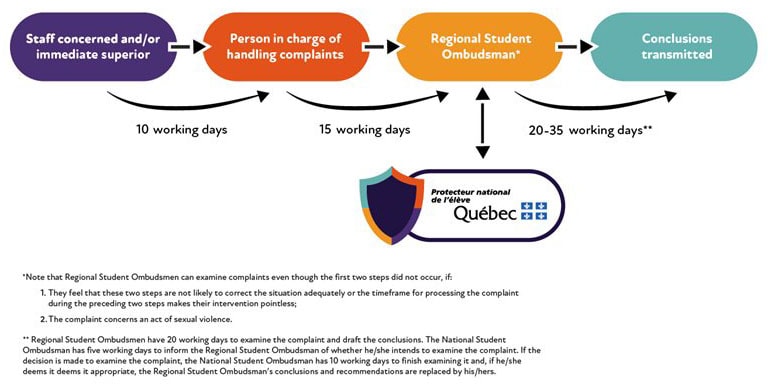National Student Ombudsperson
Procedures & Protocols
The government of Québec has introduced new procedures that are intended to ensure the safety and security of students across the province.
The National Student Ombudsperson (Protecteur national de l'élève) and a team of Regional Student Ombudspersons (Protecteurs régionaux de l’élève) will be working autonomously and external to the school network to ensure that student and parent rights are upheld, and that schools across the province are meeting important standards in student safety.
As always, the Faculty, Staff and Administration at St. George’s continue to be your primary communication link should you have any concerns about safety, security, school life or academic programs.
The steps indicated below outline the updated procedures and highlight the role of both the government and schools, according to the recent amendments to the Act respecting private education.
Student and parent rights
The National Student Ombudsman is responsible for applying the complaint and report processing procedure in Québec’s education system.
As part of this province-wide and standardized procedure, the National Student Ombudsman is assisted by Regional Student Ombudsmen throughout Québec. Together, they ensure that student and parent rights are upheld. As a result, they contribute to the continuous improvement of education system services.
Filing a complaint
Should the student or their parent be dissatisfied with the educational services they received, are receiving, should have received, or need, they can file a complaint based on a procedure that consists of a maximum of three steps:
Step 1 – Person directly concerned or the person’s immediate superior
To file a complaint, the student or their parent must first approach the person directly concerned or that person’s superior.
The complaint may be verbal, but it is better if it is made in writing.
The person who receives the complaint has 10 working days to respond.
Step 2 – Person responsible for processing complaints
If the student or their parent is still dissatisfied with how the complaint is being handled, or if the 10-day deadline has expired, they may then approach the person responsible for processing complaints within the school service centre, the school board or the private educational institution, as the case may be.
The complaint may be verbal, but it is better if it is made in writing.
The person responsible for processing complaints has 15 working days to respond.
The person responsible for processing complaints at St. George’s is Brian Foote. He has 15 working days to respond to the complaint, which is communicated using this form to be completed by parents: https://pne.gouv.qc.ca/Anonymous/Index/a1feb0c1-fd38-4675-ab7d-d4e3f80c0fcf/88a1a595-0e6a-42f6-93f5-1a7c1525b078?lang=en-US
Step 3 – Regional Student Ombudsman
If the student or their parent is still dissatisfied with how the complaint is being handled, or if the 15-day deadline has expired, they may contact their Regional Student Ombudsman, who will help them draft their written complaint.
The student or their parent may choose the form of communication that best suits them among the following:
Web complaint form: https://pne.gouv.qc.ca/Anonymous/Index/a1feb0c1-fd38-4675-ab7d-d4e3f80c0fcf/7cd4e09a-a5c8-4fdb-9588-4a8d73f87640?lang=en-US
Phone or text message: 1-833-420-5233
Email plaintes-pne@pne.gouv.qc.ca
Regional Student Ombudsmen have 20 working days to examine the complaint and issue their conclusions. If they deem that the complaint is substantiated, they may make recommendations to the school service centre, the school board or the private educational institution.
However, before the conclusions are sent, the National Student Ombudsman examines them. He or she has up to 5 working days to decide whether to examine the complaint in turn. If so, he or she has 10 working days to complete the examination and, if need be, to substitute his or her conclusions or recommendations for those of the Regional Student Ombudsman.
The Regional Student Ombudsman then informs the complainant and the school service centre, school board or private educational institution about the conclusions and any recommendations.
The school service centre, school board or private educational institution has 10 working days to inform the complainant and the Regional Student Ombudsman of whether it intends to follow up on the conclusions and recommendations made to it, or of its reasons if it has decided not to act on them.

Note that in the case of sexual violence, the student or one of their parents may, if they wish to do so, approach the Regional Student Ombudsman directly.
Making a report
A report, which anyone can make, is possible only if it concerns sexual violence(1) against a student who attends an educational institution.
Such a report is made directly to the Regional Student Ombudsman, omitting the first two steps, by:
– a teacher
– a non-teaching professional staff member
– a member of the executive staff of an educational institution
– other students or one of their parents
– etc.
(1) "The concept of sexual violence refers to any form of violence committed through sexual practices or by targeting sexuality, including sexual assault. It also refers to any other misconduct, including that relating to sexual and gender diversity, in such forms as unwanted direct or indirect gestures, comments, behaviours or attitudes with sexual connotations, including by a technological means." For further information about acts of sexual violence, see the Government of Québec page on the forms of violence.
The person who makes the report may choose the form of communication that best suits him or her among the following:
– Web complaint form: https://pne.gouv.qc.ca/Anonymous/Index/a1feb0c1-fd38-4675-ab7d-d4e3f80c0fcf/7cd4e09a-a5c8-4fdb-9588-4a8d73f87640?lang=en-US
– Phone or text message: 1-833-420-5233
– Email: plaintes-pne@pne.gouv.qc.ca | sarah-beth.trudeau@pne.gouv.qc.ca
Reports are fast-tracked. The information that could serve to identify the person who makes the report is kept confidential, unless the person’s consent has been given. If required by law, the Regional Student Ombudsman discloses the person’s identity to the Director of Youth Protection.
Regional Student Ombudsmen may also, on their own initiative, process cases of sexual violence.
Protection against reprisal
The Act respecting the National Student Ombudsman protects against reprisal people who, in good faith, make a report or file a complaint, cooperate in the processing of a report or complaint or accompany a person who makes a report or files a complaint.
It is also prohibited to threaten to retaliate against a person to dissuade him or her from filing a complaint or making a report.
The following are presumed to be reprisal measures against students or their parents:
– Depriving them of rights
– Treating them differently
– Suspending or expelling the student
For the staff members of an educational institution who make a report or cooperate in the examination of a complaint or report, the following are presumed to be reprisal measures:
– Their demotion
– Their suspension
– Termination of their employment
– Their transfer
– Disciplinary sanctions or other measures that adversely affect their employment or working conditions.
Fines for a natural person who retaliates or threatens to retaliate range from $2,000 to $20,000. Fines can vary from $10,000 to $250,000 for legal persons.
Interested in St. George’s?
Learn more about our school and be the first to hear about upcoming events.
[YEAR ROUND] General Optins
Elementary School Campus
3685 The Boulevard
Westmount, QC H3Y 1S9
High School Campus
3100 Le Boulevard
Montréal, QC H3Y 1R9
514-937-9289 info@stgeorges.qc.ca
Admissions
514-904-0542
admissions@stgeorges.qc.ca
© 2025 | Terms of use | Privacy policy
















